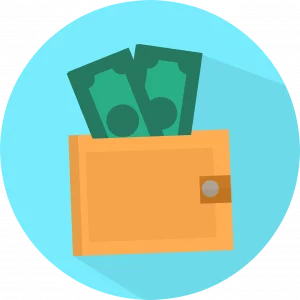Payday Loans can be a good way to help you with an unexpected bill – this could be a medical bill, vet bill or even a car repair bill – and are also a good way to provide a bit of extra cash until your next payday.
However, payday loans can be an expensive product, and if you aren’t careful, could lead to an accumulation of debt. It is therefore important to have a repayment plan before you apply to borrow money online.
It is estimated that on average, around 14% to 20% of people who take out payday loans are unable to repay them and will end up writing off the debt or going through an arrangement to pay them off.
Although repayments are usually done automatically, there are ways for you to stop paying payday loans legally.
How to Stop Paying Payday Loans Legally: a Step-By-Step Guide
If you’re one of the 12 million Americans who’ve used a payday loan in the past year, you probably know that most payday lenders require you to set up an ACH payment or automated clearing house payment, which is like a direct debit payment to them.
However, if you find yourself in a position where you need to stop lenders from debiting your bank account, there are steps you need to take.
1. Notify Your Lender/s
Your bank and the lender need to be notified in writing and sent via certified mail.
More often than not, your lender will be able to talk to you and help you arrange an alternative payment method, or a delayed payment. If the reason you’re unable to make your repayment is out of your control, your lender will often be sympathetic and do what they can to help you in this situation.
The Consumer Financial Protection Bureau (CFPB) offers a stop automatic payment letter template that borrowers can simplify the process. Call your lender to notify them, keep copies of written and verbal communications for your records.
2. Notify Your Bank
After speaking to your lender, you should call your bank to tell them that your lender no longer has the authorization to debit your checking account for the loan payments. Use the CFPB template to help you craft a letter covering all the salient points.
3. Issue a Stop-Payment Order
Immediately contact the bank or credit union to issue a stop-payment order for the following loan payment, especially if automatic payment revoked authorization close to the next withdrawal date.
The bank will provide the steps necessary to stop payment officially. An initial call may be adequate, though the bank may require written notice.
You will want to ensure all paperwork is with your bank and lender three days before your payment is due.
4. Monitor Your Bank Account
Observe your bank account to ensure that the payday lender does not continue to debit payments from the account without authorization. If money is withdrawn, dispute the withdrawal and get the money – and any associated withdrawal fees – refunded.
As a last resort, you can close your bank account to stop the transfers, but bear in mind that this will have an adverse impact on your credit.
Alternatives to a Payday Loan
If you decide that a payday loan isn’t for you, or perhaps if you live in one of the 13 states where payday loans are not legalized, you may decide to take alternative measures to help you out of your financial funk.
1. Borrow From Family or Friends
If you’re in a financial bind, borrowing money from family and friends may be a great way to dodge a high-interest payday loan.
Regardless of the interest rate you decide on, put your loan agreement in writing. This contract should include the amount of money you are borrowing, the interest being charged or the collateral being used, the payoff period, and the payment amounts and due dates.
2. Cash Advance From a Credit Card or Employer
A credit card cash advance typically charges a lower interest rate than a payday loan.
Keep in mind, though, that the APR for a cash advance from a credit card may be higher than the APR for purchases made on the same credit card. You’ll also be charged a fee for withdrawing a cash advance (3% or 5% of the amount borrowed is common).
If you are employed, it may be worth speaking to your employer if you have encountered financial demands that you can’t quite meet. Many employers offer schemes to help out their employees, most notably in the form of pay advances.
A pay advance is given when your wage is granted to you early. This may be necessary if you are hit with a bill before your next pay day and need funds, and fast.
3. Payday Alternative Loan (PAL)
Lower-cost PALs give a borrower more time to pay off a loan than a payday loan does.
A credit union can charge an application fee of up to $20 for a PAL. PAL amounts can range from $200 to $1,000, with the payoff period lasting one to six months.
As many as three PALs may be given to the same borrower during a six-month period, as long as no PAL overlaps or rolls over.
